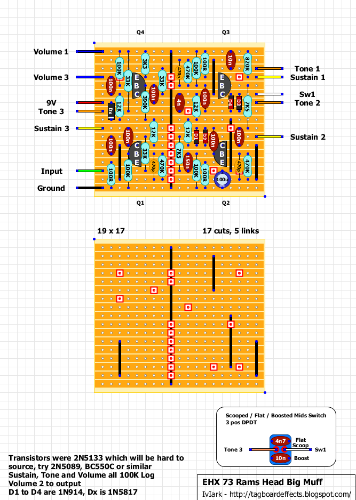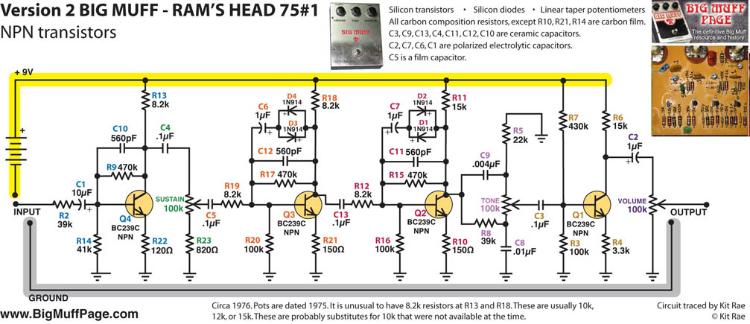I've been building the 75#1 version of the Ramshead Muff using this layout.

Schematic used:

It didn't work so I whipped out an oscillator and an audio probe. The signal stops right at the start at the input of R2. When I desolder C1 signal will pass through R2, resolder C1 and the signal disappears again. Oddly enough when I hook the muff up to an amp and the oscillator through the audio probe signal will through the entire circuit, including C1. But just not through R2. Anyone have any idea how to solve this?
Also, how correct is the orientation of C7 in this schematic, as it seems to be contrary how C6 sits in the circuit?